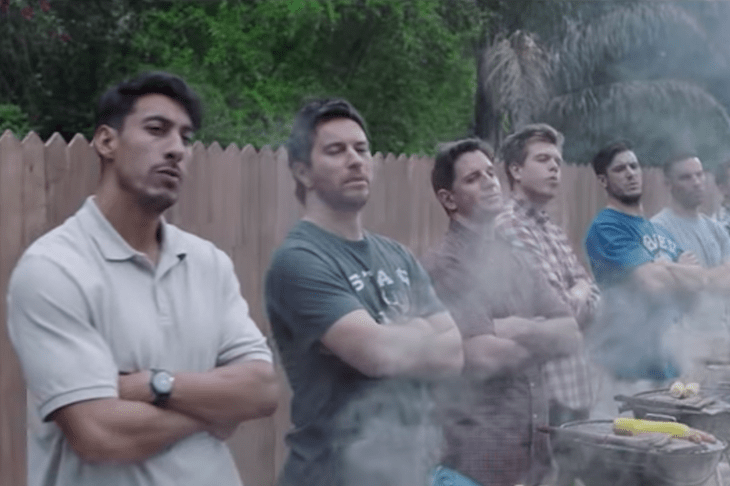For those looking to an antidote to Gillette’s painful ‘The Best a Man Can Be’ advert I highly recommend browsing YouTube for another, equally revolutionary, commercial which also attracted millions of hits. Seven years ago, Dollar Shave Club’s controversial advert revolutionised the congested and hotly contested field of men’s grooming and had Gillette firmly in its sights: ‘Do you like spending $20 a month on brand name razors? 19 go to Roger Federer.’
Gillette’s rivals certainly liked it, with Unilever snapping up the upstart company for $1 billion as Gillette’s market share spiralled downwards from 70 per cent at the beginning of the decade to 54 per cent today.
Gillette has tried everything to fight back against the marauding incomers, trying to litigate them out of existence over patent violations and hitting back with their own dollar shave club. None have worked so far, and its parent company Procter & Gamble reported a drop in sales across its grooming division last year.
So, the recent Gillette advert must be seen in the context of what is an increasingly filthy turf war for control of the men’s grooming business. When the woke father finally breaks free from his line of barbecues to separate his fighting children crying, ‘This is not how we treat each other,’ he is rather like the innocent Soviet-backed peace campaigners of the early 1980s, merely a pawn in a bigger battle. Who will be the king of shaves – Gillette or the upstart brands?
The controversy surrounding the advert with its leering bosses and pervy pool parties is certainly by design not accident. Gillette is famous for spending hundreds of millions on its advertising budgets. Only a small percentage of this will go to hiring top class producers to direct their commercials, in this case London-based Kim Gehrig whose credits include the music video for Calvin Harris’ ‘Girls’ which contains the not very woke line: ‘I like them black girls, I like them white girls, I like them Asian girls.’
The bulk of the advertising spend will be on market research, hiring agencies to sit through hundreds of interviews with people from their target markets around the world. Answers will be filed away in increasingly complex spreadsheets deciphered by ‘quants’ and ‘quals’ who will translate their findings for their client companies. It may sound like voodoo science but any brand agency worth their salt will be able to point to the bottom line; how all their weird and wonderful work led to a boom in sales.
In the case of Gillette, evidently the researchers’ brief was how to reposition the company away from its Old Spice and Mad Men clientele and towards the youth market so deftly mined by the upstart shaving companies. On this level the advert might actually make sense. Older clients are unlikely to change their shaving habits (as much as I like the Dollar Shave Club advert, signing up to any form of mailing list fills me with horror). But The Best A Man Can Be advert’s mistake may be that it harangued rather than entertained its audience.
That Gillette clearly gets its message so wrong though points to an interesting aspect. After spending millions and conducting hours of research the company has evidently concluded that wokeness has become a shortcut for an ageing brand to appeal to youth culture. This spells trouble for those who have enjoyed riding the toxic masculinity bandwagon for the last two years.
Not all those who dislike the new advert are siding with US actor James Woods, who views it as part of the ‘men are horrible campaign’. The #MeToo brigade should be worried by The Best A Man Can Be as well. Rather like Danny from Withnail and I’s lament at the end of the 60s, ‘They’re selling hippie wigs in Woolworth’s, man. The greatest decade in the history of mankind is over,’ once the revolution starts to be commoditised it’s definitely over. Men should return to their barbecues and rejoice.






Comments